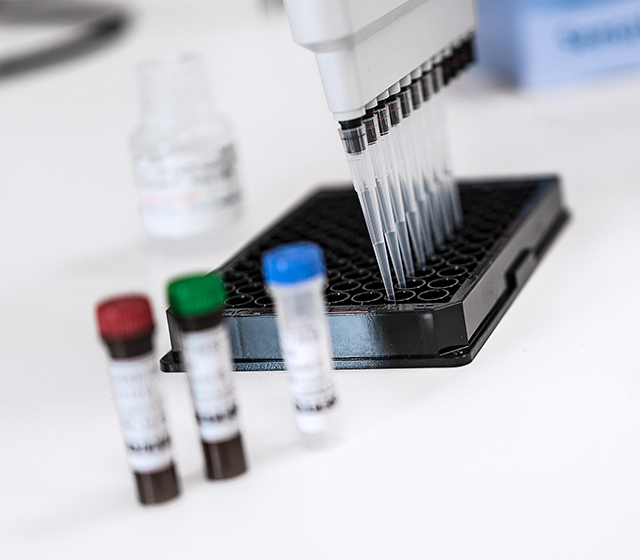Diabetes - Metabolism
Dipeptidylaminopeptidase 4 (DPP IV)
Insulin Degrading Enzyme (IDE)
Enterokinase
Enterokinase or enteropeptidase is a heterodimeric serine protease produced by cells in the duodenal wall. It converts trypsinogen to trypsin, indirectly activating a number of pancreatic digestive enzymes. Enterokinase is a key enzyme for intestinal digestion of proteins. Its deficiency may cause severe protein malabsorption leading to impaired development and growth. Enterokinase also plays an important role in acute experimental and clinical pancreatitis. The high degree of specificity exhibited by enteropeptidase for cleaving affinity or other tags from recombinant proteins makes it an ideal tool for use in biochemical applications.

Insulin degrading enzyme (IDE)
IDE is considered a physiological and pathological relevant enzyme. Growing evidences have indicated that IDE may be involved in the pathogenesis of Alzheimer’s disease and diabetes mellitus type 2.
Dipeptidylaminopeptidase 4 (DPP IV)
DPPIV is a widely distributed serine protease that cleaves two amino acids from small peptides containing alanine or proline in the second position of the N-terminus of the peptide. DPPIV activity is especially critical for inactivation of GLP-1, a potent antihyperglycemic hormone, inducing glucose-dependent stimulation of insulin secretion. DPPIV inhibitors provide a potent treatment for type 2 diabetes prolonging the activity of GLP-1 and improving insulin secretion and blood glucose control regulation.
Calpain
The calpains are a family of intracellular cysteine proteases implicated in a variety of calcium-regulated cellular processes as well as various pathological phenomena such as ischemic injury, muscular dystrophy, diabetes, cataract, atherosclerosis, Alzheimer’s disease, and cancer. Calpains represent potential therapeutic targets for drug discovery.
Glucocerebrosidase
Glucocerebrosidase/GBA is a lysosomal enzyme responsible for the breakdown of glucocerebroside releasing glucose and ceramide. Deficiency of this enzyme due to genetic mutations leads to accumulation of glucocerebroside and development of lysosomal storage disease, known as Gaucher disease (GD).
Neprilysin
Neprilysin (NEP) is a transmembrane metallopeptidase normally expressed by a variety of tissues. It cleaves peptides at the N-terminal side of hydrophobic amino acid residues and is responsible for the degradation and inactivation of a variety of physiological substrates. NEP has been implicated in the pathogenesis of hypertension, diabetes, cancer and Alzheimer's disease.